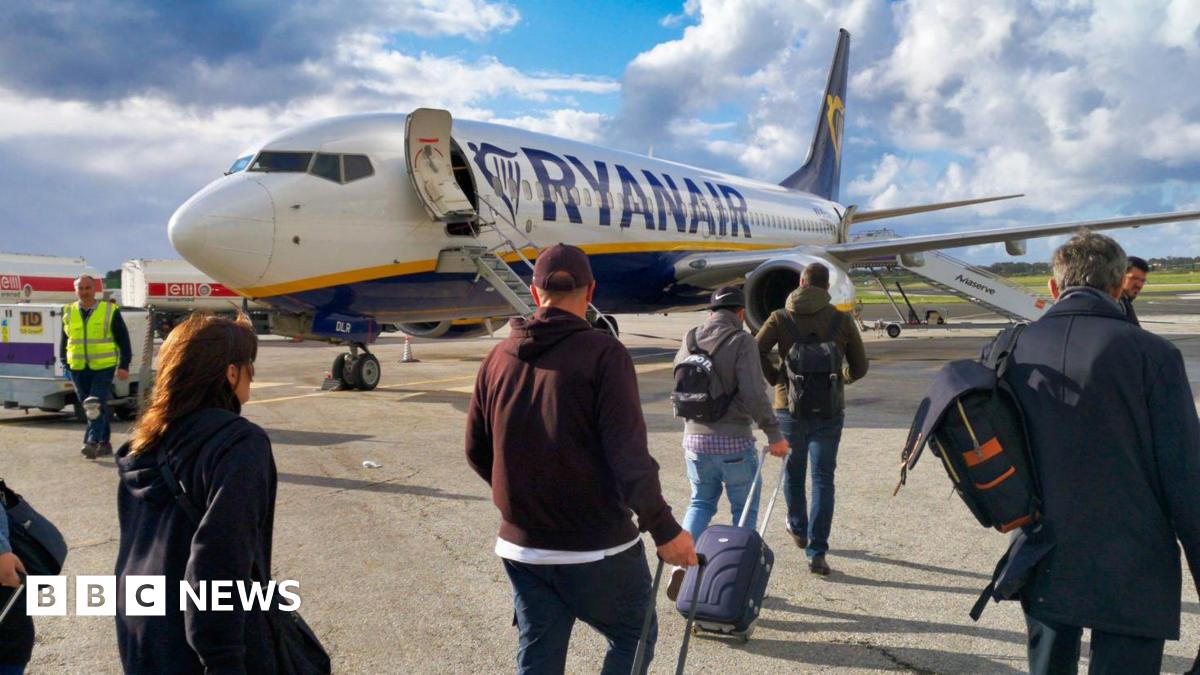Ryanair is making headlines once again, this time with a potential game-changing initiative aimed at addressing the escalating issue of oversized baggage on flights. CEO Michael O'Leary has revealed plans
Did You Know
There’s a species of jellyfish that’s immortal.
?
AD
to increase bonuses for staff who identify and report passengers trying to board with non-compliant luggage. In the ever-competitive airline landscape, where operational efficiency is crucial to profitability, this strategy seeks to bolster employee incentivization while tackling the 'scourge' of excess baggage that often leads to delays and increased costs.
The current bonus structure, which rewards employees with £1.30 to £1.50 per passenger for spotting oversized bags, has a cap that is currently set at £70 or €80 monthly. However, O'Leary's proposed increase aims to provide greater motivation, reflecting the airline’s commitment to maintaining its low-cost business model. After all, managing luggage has a direct impact on flight operations and customer satisfaction. By empowering staff to act as enforcers of baggage policies through a more substantial financial incentive, Ryanair hopes to streamline processes and improve overall service delivery.
With regulatory changes on the horizon in the EU regarding baggage charges, the airline is positioning itself to adapt proactively. O'Leary's efforts serve not just as a response to current challenges, but as a strategic move to enhance the efficiency of its operations while keeping costs low. As passengers increasingly expect hassle-free travels, Ryanair's focus on curbing oversized luggage is a testament to its ongoing dedication to improving the flying experience, ensuring a win-win for both the airline and its customers.
Q&A (Auto-generated by AI)
What is Ryanair's baggage policy?
Ryanair's baggage policy is designed to minimize costs and maximize efficiency. Passengers are allowed one small cabin bag for free, but larger cabin bags incur fees. The airline is known for strictly enforcing size limits on carry-on luggage. To discourage oversized bags, Ryanair has introduced a 'gate bag bonus' for staff who identify oversized luggage, reflecting their commitment to adhering to these regulations.
How do staff bonuses impact passenger experience?
Staff bonuses for identifying oversized bags can lead to a more stringent enforcement of baggage policies, potentially enhancing the overall passenger experience by ensuring compliance with size regulations. However, this may also create tension at boarding gates, as passengers could feel unfairly targeted. The goal is to maintain efficiency and reduce delays caused by oversized luggage, contributing to a smoother boarding process.
What are EU regulations on cabin luggage?
EU regulations on cabin luggage generally allow airlines to set their own policies regarding size and weight limits for carry-on items. However, these regulations mandate that airlines must inform passengers of their policies clearly. Ryanair's strict enforcement of these rules aligns with EU guidelines, ensuring that all passengers are aware of the baggage restrictions before travel.
How does Ryanair's model compare to competitors?
Ryanair operates under a low-cost model, focusing on minimizing operational costs while maximizing revenue through ancillary fees, such as those for oversized baggage. Unlike traditional carriers that may offer more inclusive baggage allowances, Ryanair charges for additional services. This model contrasts with competitors like EasyJet or British Airways, which may provide more flexibility with baggage policies but at higher base ticket prices.
What are the financial implications of bag charges?
Bag charges can significantly enhance an airline's revenue stream, especially for low-cost carriers like Ryanair. By incentivizing staff to enforce baggage policies through bonuses, the airline aims to reduce the number of oversized bags, which can lead to additional costs in handling and delays. This strategy not only generates direct revenue from fees but also improves operational efficiency, ultimately benefiting the airline's bottom line.

















